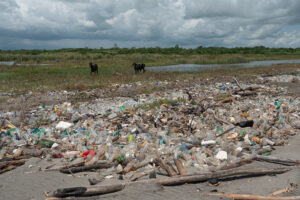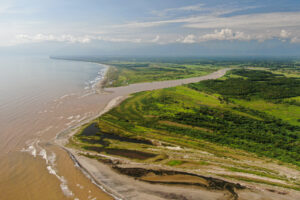Plastic waste and its management are one of the biggest challenges in the 21st century. A vast amount of plastic waste floats in the ocean and rivers, affecting marine and land life. The rise of microplastic intake in humans is a result of polluted rivers and other water sources. So, in this calamity, one organization called The Ocean Cleanup is taking the initiative to clean up the water bodies around the world.
The Ocean Cleanup: Vision Of The Mega Project
Boyan Slat founded Ocean Cleanup with a vision of eliminating plastic waste from the water bodies. He had a plan to design world-class tools and equipment that could get rid of the plastic waste flowing from the river into the oceans. The non-profit organization was started in 2013 and faced a lot of challenges initially. However, the firm overcame all the ups and downs to scale itself to the fully functioning mega-project.

Initial Prototypes and Their Testing
The most crucial aspect of Ocean Cleanup was to design machines capable of collecting waste while not interfering with the water body. The initial prototypes were tested in the North Sea, and after that, significant upgrades were made. This consistent research and development led to the foundation of the Interceptor project.
The Interceptor Project
The majority of the world’s rivers lead into the ocean, so it’s clear that river streams are the significant sources of plastic in oceans. As a result, Ocean Cleanup planned to design the Interceptor, equipment that can catch plastic waste flowing into the river. It is a functional structure with a simple approach to reducing water waste and has a tremendous positive impact on the whole project.

Environmental and Social Impact
The Ocean Cleanup initiative has had a positive impact on the world’s rivers. It opens doors for innovation in cleaning programs across the globe and addresses plastic waste issues. At present, other governments are collaborating with the organization to start a cleanup drive in the rivers. The initiative also ensures long-term sustainability and a world with less plastic pollution.
Global Partnerships and Collaborations
Many big authorities and governments are using Interceptor technology to clean rivers. The project is on its way to becoming a global success, with many collaborative efforts taking place. It is also a great way to teach and launch campaigns against the pollution problem in the world.
Future Goals and Innovations
The organisation plans to eradicate 90 per cent of plastic waste from water bodies by 2040. However, this is a big dream, and it needs the support of both local and global authorities. In addition, the firm needs to spread awareness against society’s inappropriate plastic habits. Then, only one can dream of a world without plastic waste pollution.

Conclusion
The Ocean Cleanup, founded by Boyan Slat in 2013, aims to eliminate plastic waste from water bodies worldwide. They design world-class tools and equipment, such as the Interceptor project, to collect waste without interfering with the water body. The project has positive environmental and social impacts, with governments collaborating to clean rivers. The goal is to eradicate 90% of plastic waste by 2040, requiring support from local and global authorities and awareness campaigns against inappropriate plastic habits.
FAQs
What does Ocean cleanup do with the plastic?
The team at Ocean Cleanup catches or intercepts plastics in water bodies, which are then further collected and sent for proper management.
How much plastic has the ocean cleanup collected?
The Ocean Cleanup has removed over a million kilograms of plastic waste around the world.
When did organisation start?
The non-profit organization was started by Boyan Slat in 2013.
Is Ocean Cleanup project successful?
The project has been a success, as it aims to clear 90 percent of plastic waste worldwide by 2040.
Is Ocean Cleanup still active?
The project is still active and moving forward. It is expected to reach third-world countries and their problems.
Who is the owner of Ocean Cleanup?
Boyan Slat is a Dutch inventor, entrepreneur and the founder of Ocean Cleanup.
Who funds the organisation?
The project heavily relies on donations and funding projects by the government or local corporations.

